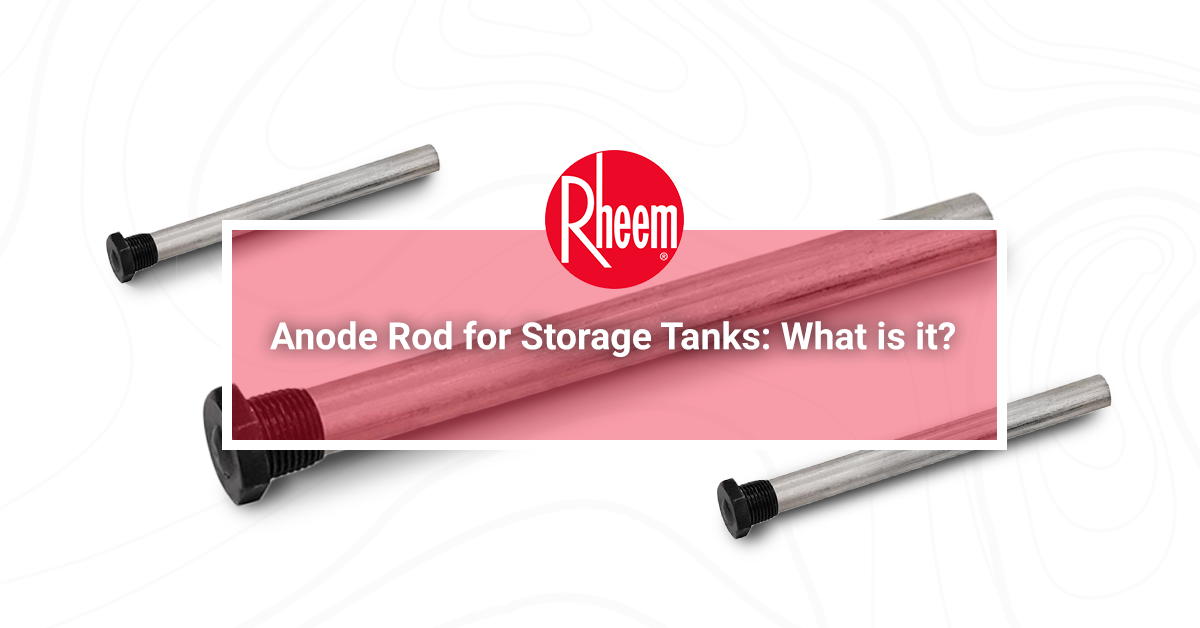
Heroes are often defined as genuinely good, brave, and self-sacrificing. We commonly read about them in comics and watch them in movies. They often have super powers and extraordinary strength, but despite their majestic qualities, they are not real and are nothing but fiction. BUT, there is one underrated hero that exists in real life. While it doesn’t have any superpowers nor astonishing strength, it is still very self-sacrificing.
We’re talking about anode rods – a small piece of metal with big responsibilities.
It’s no hidden secret that metals rust when exposed to water and oxygen for prolonged periods. A water heater warms up gallons of water by conducting heat through metallic elements, so, how is it possible that your storage tank is able to resist rust for years? Well, that’s because manufacturers have devised a simple, yet clever component called the anode rod that helps to minimize rust from damaging your water heaters.
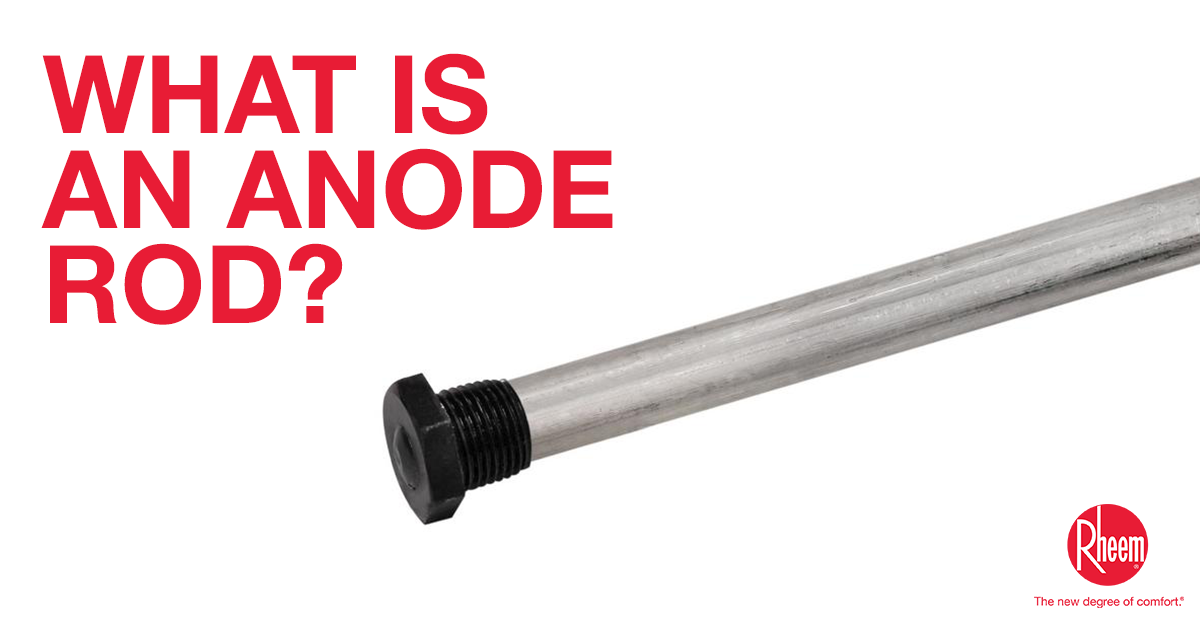
The anode rod or the sacrificial anode rod is a unique component that helps storage water heaters to prolong their lifespan. From the word “sacrificial”, it literally means that the anode rod ‘sacrifices’ itself by succumbing to rust first before other components of your storage tank. It is usually made with a steel core wire that is surrounded or covered by either aluminum, magnesium, and zinc – which are known to be less-noble or elements that corrode faster.
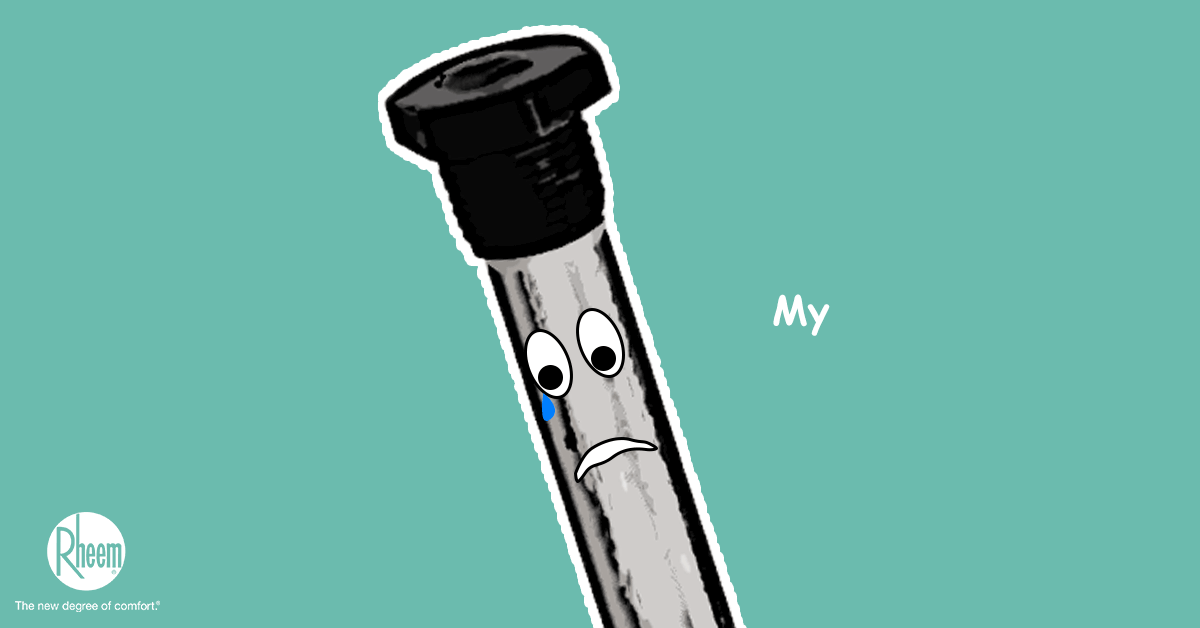
To better understand how an anode rod works and how it can make your storage tanks last longer, we must first understand how storage tanks are built.
Stainless steel or iron is the most common and the most ideal material for storage tanks. Most storage tanks are built using this material since it provides better insulation. However, just like any other metals, it is also prone to corrosion or rusting. This is why tanks are usually reinforced with enamel coating to protect its inner wall from corroding. (Read more here: www.rheemphilippines.com/blog/enamel-coating-for-storage-tanks)
Now that we know how tanks are built, next, let’s try to understand why we need anode rods. To make sure the inner wall of storage tank is the last thing to rust, manufacturers insert replaceable anode rods into storage tanks. This is so that if rusting must occur, it will happen to the anode rods first. Once rusty, the anode rod can be easily replaced, saving you the trouble of replacing the entire storage water heater. Aren’t anode rods amazing? Let’s understand the actual chemical reaction involved here:
The corrosion or rusting starts with oxidation or when a metal gives up two electrons (negatively charged subatomic particles) to the oxygen molecules present in the water tank. The heat produced by the heating element in the water heater speeds up this process and can help to corrode the water tank. However, thanks to the anode rod that is in the storage water heater, the anode rod will corrode first instead. This is because the aluminum and magnesium in the anode rod tend to give up electrons faster than the steel or iron tank, thus allowing the oxygen molecules in the water to take them instead.
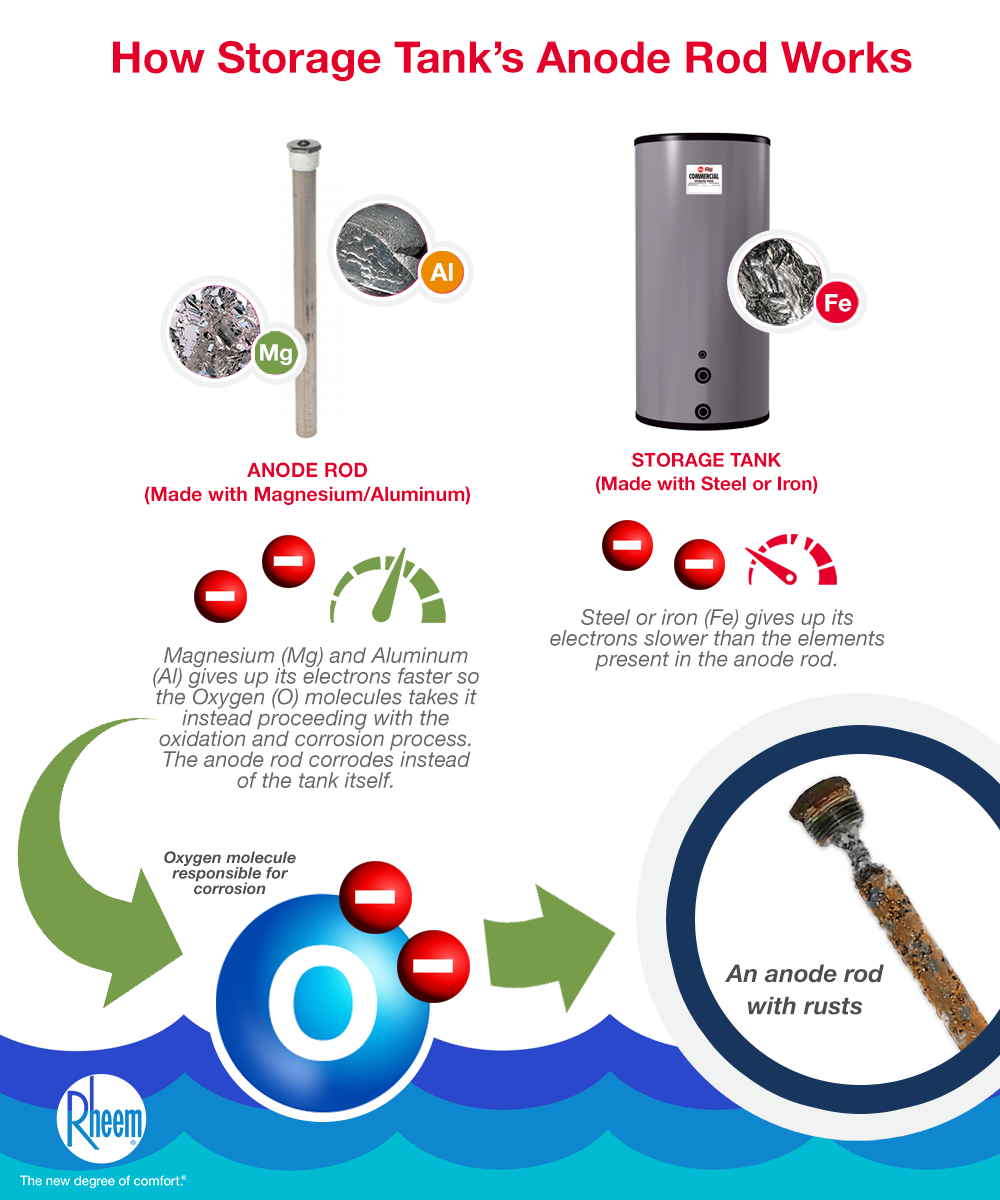
An anode rod can only last for a few years, depending on the water temperature, the household water usage, the system quality, and even the water chemistry. Once the aluminum or magnesium on the anode rod runs out of electrons to give up for the tank, the anode rod will become rusty. When this happens, the oxygen molecule will have no choice but to combine with the iron or steel molecule from the tank, thus speeding up the corrosion process of the tank, which will ultimately result in an entire damage of your storage water heater. This is why it is important for you to check and change your anode rod every three years. Just always remember that it is always better to ask a specialist to do the replacement for you as it may involve tools that are not usually present in common households.
As the leading manufacturer and distributor of water heating solutions worldwide, Rheem’s storage tanks are built for a long life span. Thanks to our quality tank coated with enamel, and coupled with heavy-duty anode rods, you will never have to worry about corrosion in your storage water heater. Take a look at our wide-array of electric storage water heaters HERE.
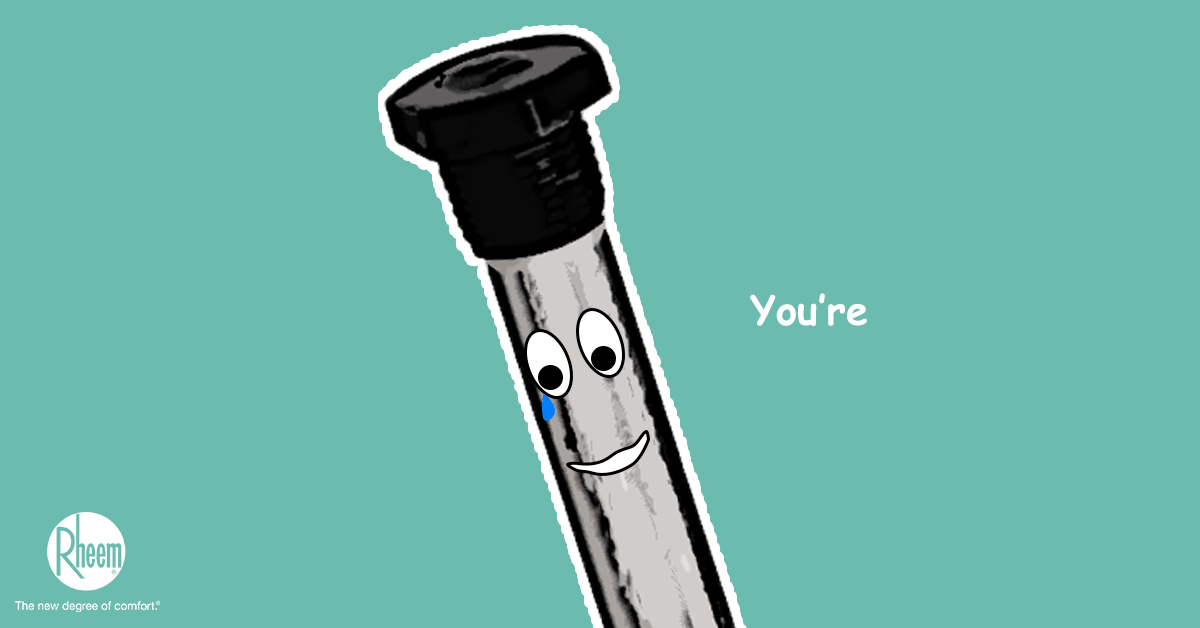
For more insightful articles about Rheem water heaters, check out our Blog page! You may also reach out to us directly for product inquiries, orders, and other concerns by sending a message to our CONTACT PAGE.
Subscribe

At Rheem, we strive to innovate
best-in-class products to lead the industry
in
environmental improvements.
Sustainability

